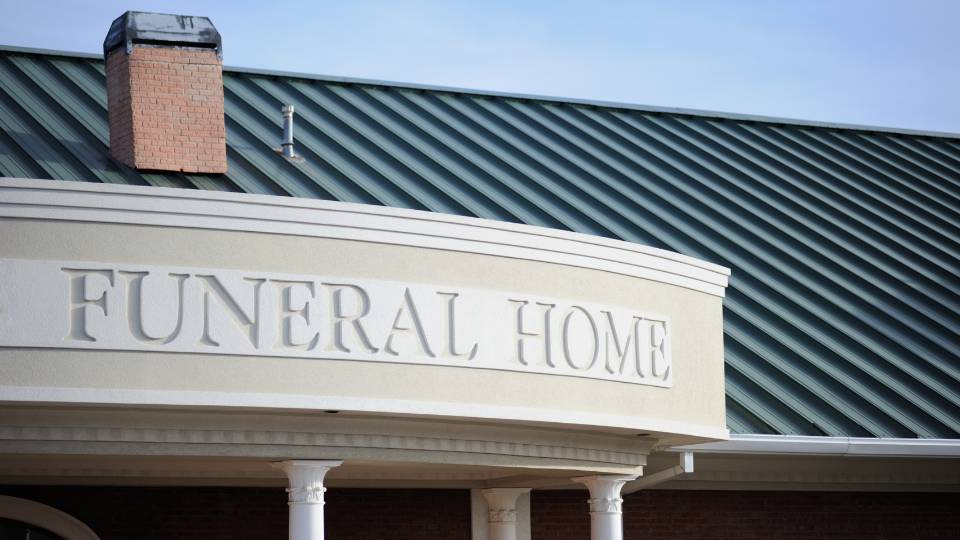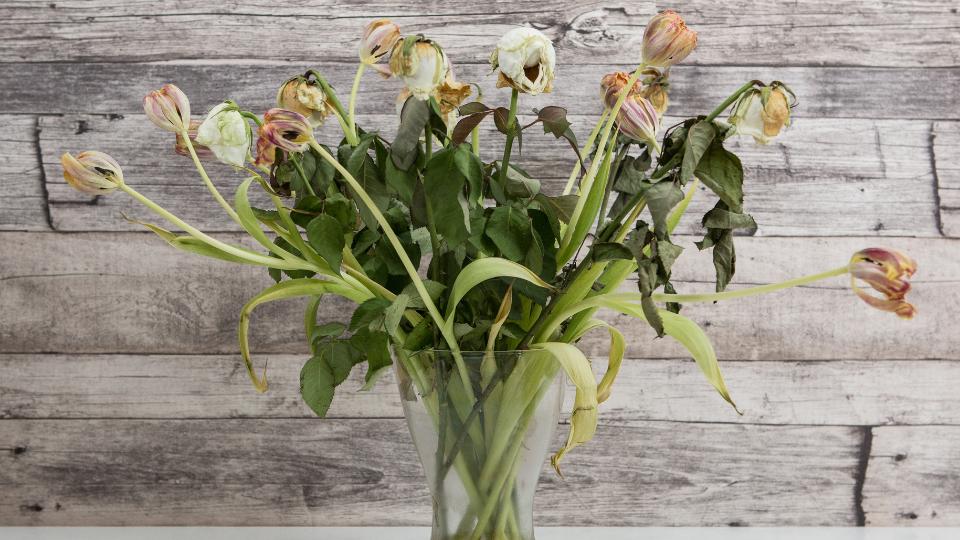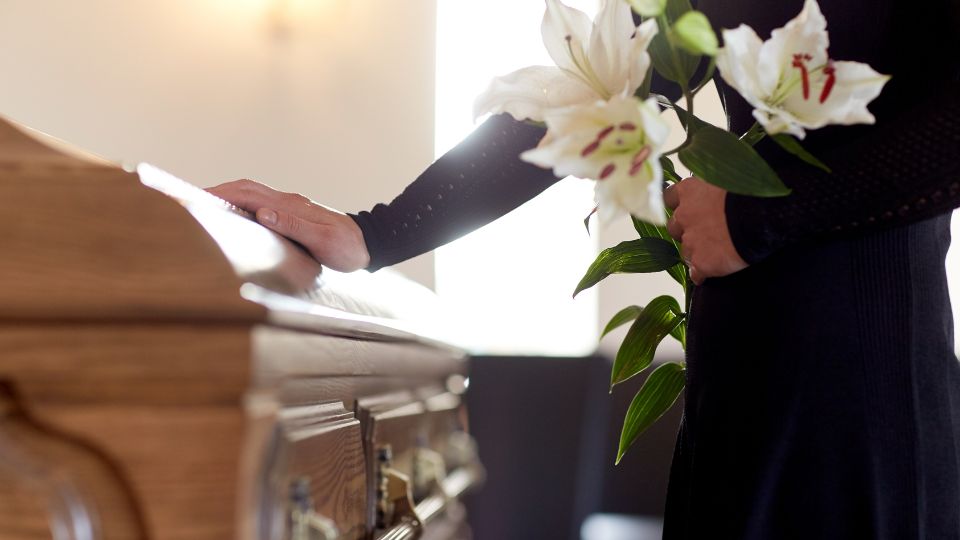
Funeral homes deal with particular and sensitive types of waste and how to deal with this waste properly can be confusing for new business owners.
This guide will discuss what funeral home waste is, what the common types of waste funeral homes produce, what the laws and regulations are, and how to arrange for funeral waste collections.
Table of contents
- What is funeral home waste?
- What are some of the common types of funeral home waste?
- Funeral home waste regulations
- How to arrange for funeral home waste collections
What is funeral home waste?
Funeral waste is any refuse or rubbish generated by funeral home businesses during operations.
In addition to general waste, medical and clinical waste are common types of funeral waste due to materials being in contact with bodily fluids, tissues and parts.
Next, we discuss the common types of funeral home waste.
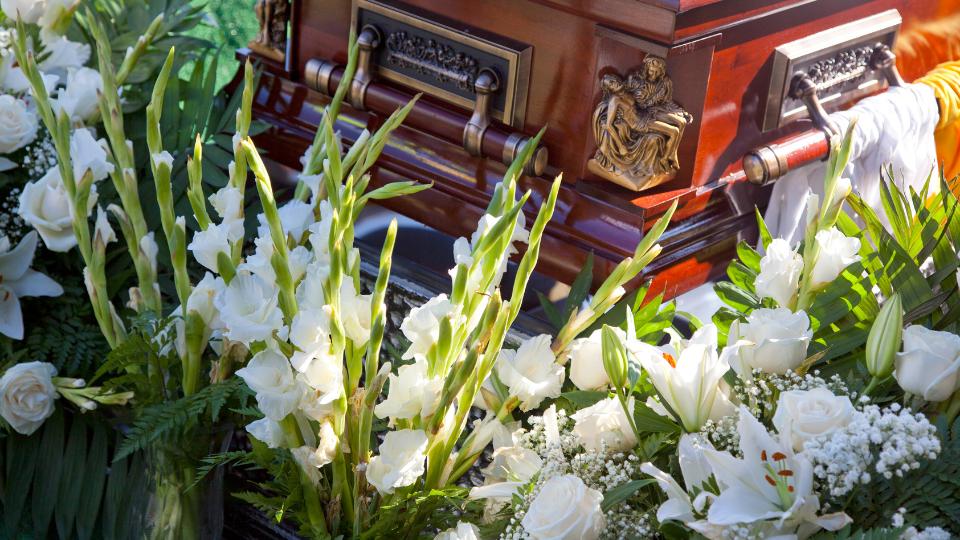
What are some of the common types of funeral home waste?
In addition to general waste, small amounts of recycling and disposing of flowers, Funeral home businesses will need collections for these types of clinical waste:
General clinical waste
Gowns and other clothing accompanying bodies that are transported from hospitals or care homes are considered clinical waste as they may be contaminated with tissue, blood, bodily fluids, or germs.
PPE
Face masks, aprons, disposable gloves and other personal protective equipment used by employees handling corpses.
Sharps waste
Needles, scissors, and scalpels used for preparing bodies.
Chemical waste
Embalming fluids are a common type of chemical waste.
Offensive waste
Blood, bodily fluid, and excrement.
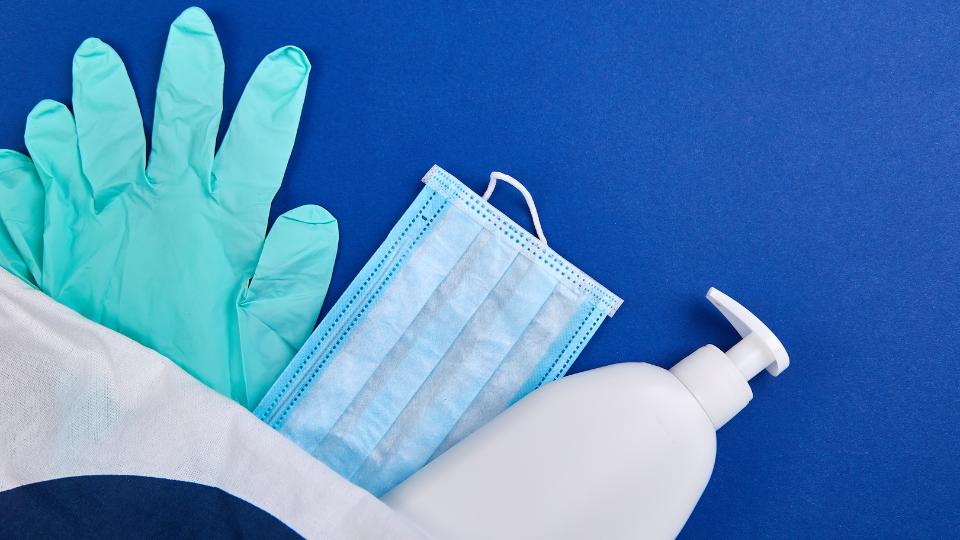
Funeral home waste regulations
Funeral home businesses must adhere to strict UK waste regulations including:
The Environment Protection Act 1990
The Environmental Protection Act 1990 requires funeral home business owners to responsibly manage waste, control pollution, and possibly obtain environmental permits for certain operations, such as cremation.
Compliance with this act ensures that funeral homes minimise their environmental impact through proper waste handling, pollution control measures, and adherence to regulations, protecting both the environment and the business from potential penalties.
The Controlled Waste Regulations 2012
The Controlled Waste Regulations 2012 classify waste types and stipulate the responsibilities for the disposal of waste, including that produced by funeral homes.
For funeral home business owners, it’s essential to understand these classifications to ensure proper waste management practices are followed, particularly for any hazardous waste like embalming chemicals, ensuring compliance with legal disposal requirements and avoiding potential fines.
The Hazardous Waste Directive
The Hazardous Waste Directive requires funeral home business owners to handle, classify, and dispose of hazardous waste—such as embalming chemicals and certain medical wastes—safely and in compliance with strict regulations.
This involves ensuring that such waste is identified, stored, and transported correctly to prevent environmental contamination and harm to human health.
The Carriage of Dangerous Goods Regulations
The Carriage of Dangerous Goods Regulations require funeral home business owners to follow specific protocols for the safe transport of hazardous materials.
Compliance ensures the safe and secure transportation of these materials, minimising the risk of accidents and environmental damage, and requires proper documentation, packaging, and labelling.
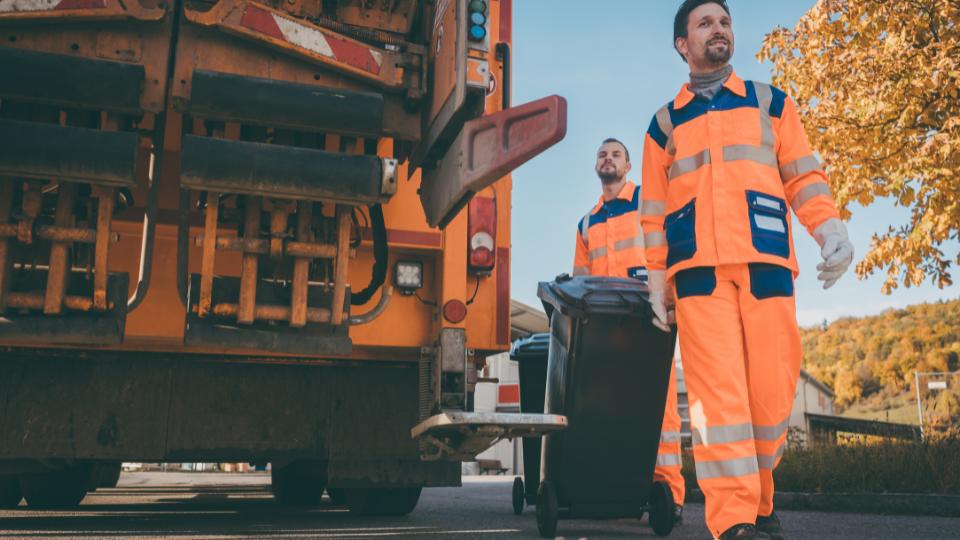
How to arrange for funeral home waste collections
It’s a legal requirement in the UK for businesses such as funeral homes to have their waste collected by a licensed waste carrier.
To arrange for collections of your funeral home waste you should get a quote from a waste management service provider.
They will help you determine what types of bins you’ll require and how often you’ll need them collected.
Once you then sign your contract, they will deliver your bins, you fill them up and they’ll be round to empty them on collection days.
Some waste management companies, like Waste Managed, even provide your bins for free.
If you’d like a quote you can call our sales team on 0120 533 8123 or use our quote form.

